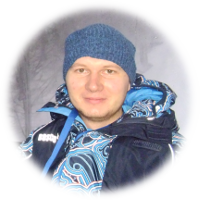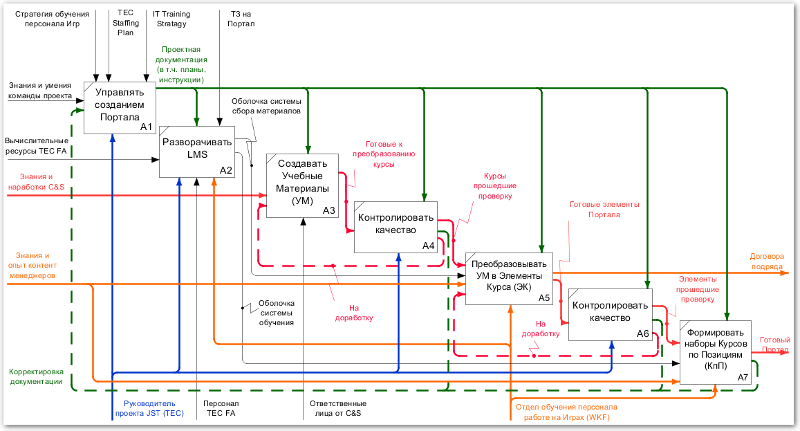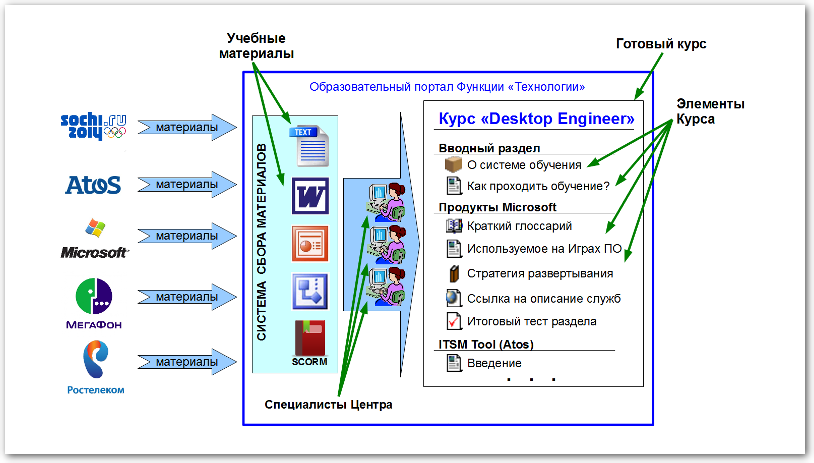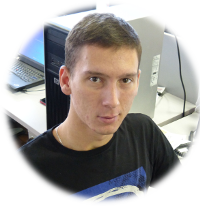Corporate training at the Olympic Games in Sochi 2014

Foreword
In 2012, I was invited to organize corporate training in the IT department of the Organizing Committee of the XXII Olympic Winter Games and XI Paralympic Winter Games of 2014 in Sochi. The project was large-scale and interesting, for two years a close-knit team of specialists was formed. We developed strategies, project-plans, purchased and deployed equipment, wrote policies and procedures, drew designs, created educational content in two languages, finished LMS, wrote code to automate diverse reports, monitoring and integration systems, conducted trainings, traveled around the country in volunteer centers, where volunteers were selected, trained, advised, rated, watched, worked at Olympic venues and did a lot of other things. About how it was, back in the period of work in Sochi, an article-interview was born, which we, however, have never published anywhere. Now it is time for this article. On the eve of the Olympic Games in Pyeongchang and on the anniversary of the opening of the Games in Sochi, we will talk about how IT services, volunteers and suppliers of IT solutions were trained in Sochi.
So, the article ...
Technology Job Specific Training

Ekaterina Yudina
Microsoft Certified Trainer
- In July 2007, at the 119th regular session of the International Olympic Committee in Guatemala, the city of Sochi received the right to host the XXII Olympic and XI Paralympic Winter Games. The location of the capital city of the Winter Games in the subtropical climate zone is already a precedent in the history of the Olympic movement. But besides this, the team of the Sochi-2014 Bid Committee, also promised that if the Russian bid was won, the Games in Sochi would be the most innovative in history.
The Olympic Games are traditionally the most beloved and expected sporting event. According to various calculations, the television audience of the Games is about 3 billion spectators, and the Olympic rings have remained the most recognized and popular brand in the world for many decades. Therefore, for the organizing country, the right to hold the main sporting event of the four years is both honor and responsibility. By the level of preparation and holding of the Olympic Games, they judge the level of development of the country as a whole; therefore, each country that has received the right to host the Games tries to show the world all the best and innovative things that it has.
')
We asked the team of the educational center, which is part of the “Technologies” functional division, to tell us about the innovations in the field of e-learning used in the preparation of the Games in Sochi. As we learned, it is “Technologies” in the Sochi 2014 Organizing Committee that are responsible for everything related to IT.

Konstantin Vishnyakov
Head of Application Information Systems
- Tell me, does the Technology Education Center train all the staff of the Organizing Committee?
No, our main task is to train Technology employees, although we also participate in general educational projects with other departments, train employees of other functional areas to work with our technology services, but this is not the rule.
“Technology”, due to its specificity, has special requirements for the training of its personnel, and as a result, special requirements for the training system used in the Job Specific Training. In Technologies, successful training directly affects the ability of staff to fulfill their roles, both during the test events and during the Games themselves.
- Konstantin, you mentioned Job Specific Training, could you tell us in more detail what this means?
Job Specific Training is a kind of introductory instruction that all employees must pass. The best specialists from all over Russia and from abroad are gathered to work in Sochi. They do not need to be trained in their professions, but it is imperative that they be trained in the features of work at the Olympic Games, in certain systems, approaches, types of equipment used.
“Technologies” as part of the Organizing Committee include 3,000 employees, 600 servers, 7,000 computers, 2,000 printers, several dozens of various internal and external information systems, systems for monitoring and processing the results of sports competitions in all kinds of sports. In addition, there are more than 10 different web projects, among which at least two — the main site and the ticket sales site — are high-load systems.
To ensure the smooth functioning of this complex “macroorganism”, the coordinated work of all team members, consisting of staff of the Organizing Committee, partners, suppliers and volunteers, is necessary. Each member of the team, regardless of their role in the conduct of the Games, must clearly understand the specifics of the work, how to act in an emergency situation and who, if necessary, to ask for help. In order for such an understanding and necessary knowledge to convey to all participants in the processes, a team of the Educational Center was formed.

Workplace in the Technology Operations Center

Alexander Adadurov
chief expert, head of educational center
- How is the work of the Educational Technology Center organized? Are you actively using E-Learning in your work?
Yes, more than that, E-Learning is the foundation. The first task that we faced was to develop a certain educational strategy that, on the one hand, would provide quality training for all target groups, and, on the other, would allow it to remain within the budget. Having studied the experience of the previous Olympic Games in Vancouver, it was decided to conduct most of the training (more than 70%) using E-Learning. Having made a preliminary training plan and a list of courses, having calculated the volumes, we determined the future composition of the team, the formats of training materials and the E-Learning platform.
Now the Technology Education Center consists of six people, whose functional roles are distributed as follows: two course creation specialists, an illustrator, a content manager, a project manager and a system analyst.
Since employees need to be trained in the most diverse areas of work, from the administration of information systems to managing the radio frequency spectrum, and our coaches cannot be experts in all areas, the creation of a single block of courses goes through several stages.
At the first stage, we make a presentation for service owners, these can be external partners, for example, communication providers, say, Rostelecom or Megaphone, or internal departments responsible for a particular service. During the presentation, we talk about our learning strategy, the chosen model for creating courses, collecting data on training needs, preliminary information about the subject area and target audience. Then, specialists of the Center together with the specialists of the owner of the service, form a package of training materials, develop an approximate composition of the course and curriculum.

Business processes of creating electronic courses (fragment)
- And, the staff of your Center, interacting with experts of the suppliers and partners of the Games - all have some kind of special education?
We all, one way or another, came from the field of IT, all of which have one of the higher educations necessarily associated with IT. Before joining the Sochi 2014 Organizing Committee, many worked either in universities or in training centers. Those who interact with specialists and develop courses have experience in teaching, experience in creating educational content, and experience in working with E-Learning.
Therefore, communicating with service providers, on the one hand, we communicate in one language, and on the other, we can advise and advise, since we have an idea of what should be the result. Narrow specialists do not always have pedagogical skills and knowledge, and the task of our Center is to help them in this area.
- Ie service providers do not develop courses themselves, does your Center do?
In some cases, when the supplier already has ready-made training materials, he simply transmits them to us and everything, we just have to convert them into the necessary E-Learning format. And in some cases, we receive schemes, instructions, illustrations from our colleagues and form a course out of this: we make presentations, videos, tests, select excerpts from the materials provided. The final course is then demonstrated to its owner, and if he approves of it, the course is launched into training. But in any case, we are doing the final design ourselves; for this purpose, our center specifically has an illustrator and content manager. The sets of courses we have formed have a certain format and style, which allows us to implement uniform pedagogical principles of teaching, and also increases the adaptability of the educational system as a whole. The trainees do not need to get used to the new data formats, forms of registration of materials and verification tests when moving from course to course.
- You have such a large organization, so many different services, how do you manage to interact with all their owners?
We realize this through our E-Learning platform. It has created a special section for course owners, in which each owner can go in, get acquainted with our scheme of work, watch introductory presentations, read the requirements for the materials provided, and, of course, post these materials. As you probably know, we have two offices, one in Sochi, the other in Moscow, and specialists are located in different cities, so we actively use information and communication technologies for interaction.

The process of converting educational materials into courses
- If it's not a secret, which e-learning platform are you using?
It's not a secret. We opted for LMS Moodle. This is an open source system, occupies a leading position in the number of users and the size of the developer community, in addition, it has all the necessary functions for e-learning. What has especially attracted us is the opportunity to adapt the system to our needs, without the need to contact a development company, and we are actively using this advantage.
Currently, for the industrial operation of LMS Moodle, we have a failover cluster of 4 nodes deployed, based on Windows Server 2008R2, and we also have a small server with a copy of the system, where we conduct various experiments on introducing new functions before transferring them in commercial operation.

LMS Moodle technology platform

Nikita Timokhin
project manager, face-to-face trainings, preparation of training materials
- If through E-Learning you carry out 70% of the teaching, how are the remaining 30% taught?
E-Learning is not the only training format in our Center, although it occupies a central place. To achieve the maximum pedagogical effect, along with E-Learning courses, face-to-face classes and trainings are held. Depending on the task, these events can be held either at the training center premises or directly at the facilities of the Olympic Games. We conduct some trainings only at the sites, where the environment is necessary for the successful mastering of the material. At such classes there is an opportunity to focus on the features of a particular object, which is impossible to do in the framework of distance courses.
We do:
Face-to-face presentations are classes of a lecture type. They are conducted mainly in the facilities or in the classroom. Another type of training
Hands On is practical training on computers, conducted internally in a specially equipped computer class. The purpose of such classes is to gain practical skills in working with specialized information systems and software. Sometimes we create some kind of special virtual learning environment in the computer class, for example, for example, there are trainings conducted by Kaspersky Lab specialists.
Another type of training event, Table Tops, is team training in emergency situations. In Russia, they are also called desk or staff exercises. They are held in person, the team gathers at the table and works out certain scenarios, pronounces the various situations proposed by the facilitator. The purpose of such events is team development of scenarios of possible emergency situations during the Games.
- And how is the knowledge control in the classroom carried out?
In some classes, we mark only the presence at the presentation, and for some we ask participants to take the test on our E-Learning portal in the Moodle system. We do not use paper tests, but we use the same portal, it allows us not to drown in the papers and to have a single database of performance for all the staff. Combining the advantages of E-Learning and traditional face-to-face trainings, multi-level training of Technology personnel is conducted.
In addition, when conducting trainings, and when developing courses in general, great attention is paid to the feedback from the audience, success and failure are taken into account, and the courses are continuously improved and improved.
Source: https://habr.com/ru/post/348470/
All Articles